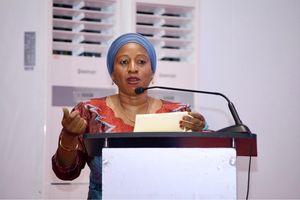CROSSROADS : Drug control law, what a lesson to our Parliament
What you need to know:
- It happened with speed. I believe that was a huge lesson to the Parliament as an independent pillar of the State and to its individual members. That is, making laws (their core job) is not enough, making follow up to see if the laws made are being implemented should be their job as well.
Finally the law wins! The Drugs Control and Enforcement Act of 2015 from last week started being used. Member of Parliament pointed out that to win the war on drugs, the law needed to be implemented. Thanks to our President for appointing the commissioners for Drugs Control and Enforcement Authority.
It happened with speed. I believe that was a huge lesson to the Parliament as an independent pillar of the State and to its individual members. That is, making laws (their core job) is not enough, making follow up to see if the laws made are being implemented should be their job as well.
Perhaps the time has come for the lawmakers to go back to the drawing board, see how many laws are dormant (laws passed by Parliament but never implemented).
Most of the time, the actualization of those laws is mostly left to the Executive, that can decide to act or not. In some cases some laws can clearly stipulates timelines of implementation. For many laws to become effective, regulations have to be made. This is mostly at the ministerial level. A delay for a year, two or five, effectively makes a law dormant.
Kudos to Mr Paul Makonda, the Dar es Salaam Regional Commissioner, who recently ignited the fire on the war against drugs. There were many different opinions on the approach used, but at times they say the end justifies the mean.
Kudos also to the MPs, despite their differences on political ideology they were fighting for law to be followed in the drugs war. Kudos to President John Magufuli, for bringing to life a law that was “hidden” and for putting in place a working and professional Drugs Control and Enforcement Authority (DCEA), whose chair is the Prime Minister, Mr Kassim Majaliwa. If commentaries in media meant anything, the new team has the support of all Tanzanians of goodwill - whether opposition or in the ruling party or even those who are members of no particular political party.
Reports shows that drugs are classified as class ‘A’ and class ‘B’. Class ‘A’ drugs include cocaine, heroine, Mandrax which are definitely imported. Ensuring they don’t reach Tanzania is the surest way to keep our youth out of such drugs. Class ‘B’ drugs are grown or made locally, example in Tanzania. This mostly is Cannabis sativa (bhang) and Catha edulis (khat a.k.a miraa).
It has been an open secret for many years that many farmers across the country at times mix their crops with either of the two.
Many times we see the police burning such farms on TV. This indicates that the problem is huge. The miraa issue is more complicated. This is because to some of our neighbours in the East African Community, it’s a legal and not classified as destructive drug, and is grown commercially! So it’s easy for khat/miraa to be smuggled into Tanzania.
Hearing the newly appointed Commissioner General of DCEA, Mr Rogers Sianga, gave Tanzanians a lot of hope. He was firm, very professional and seemed to know what it takes to fight the war against drugs.
He was emphatic that cutting supply of drugs is the way forward while at the same time educating the public about the dangers of drugs and helping addicts to get treatment. In this very column, sometimes back, I highlighted a research that indicated that students were being introduced to drugs in the dear motherland. When we blame addicts and their parents for bad upbringing, it does not help us. Some addicts are victims introduced to drugs with little or no knowledge about the disaster they are getting themselves into.
Mr Rogers, you have our support, and surely you can free Tanzania from hard drugs!
Saumu Jumanne is an assistant lecturer, Dar es Salaam University College of Education (DUCE)




